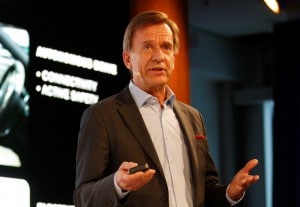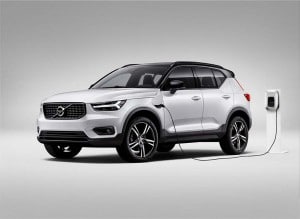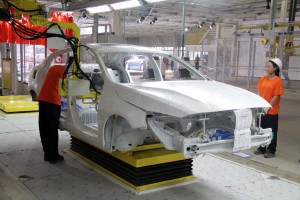
Hakan Samuelsson, Volvo Cars president and CEO, said merging the combustion engine operations of Volvo and Geely will save the company money.
In a bid to reduce costs, Volvo Cars is combining its engine development and manufacturing operations with those of its China-based parent Geely, resulting in a stand-alone division to produce internal combustion and hybrid engines.
The new entity will produce powerplants for Volvo as well as Geely, Lotus, Lynk and Proton, Reuters reports. Volvo’s 3,000 employees will be merged with Geely’s 5,000 people, but the partnership will not result in any job losses, said Volvo CEO Hakan Samuelsson.
Volvo has really put an emphasis on developing battery-electric vehicles, especially for its Polestar brand, and by joining forces with Geely’s team, it can continue to develop more efficient gasoline and hybrid engines. Volvo isn’t producing diesels any longer to focus on EVs and hybrids.
(Volvo Offering Popular XC40 as a Battery Electric)
Volvo currently builds 600,000 internal combustion engines and combined with Geely it jumps to about 2 million, Samuelsson told Reuters, adding it’s this large volume that helps generate the cost savings.

Volvo’s XC40 will be offered as a battery-electric model by the end of the year, making it the company’s second fully electrified vehicle.
“As a general business, combustion engines is most probably not growing. It is important to consolidate and seek synergies. It is another step transforming our company in the direction of electrification,” Samuelsson told Reuters.
“On a component level, I see considerable cost savings. Most important is the development side. The engineers will get the resources to take the next step to develop top-notch hybrid engines,” Samuelsson said.
Sweden-based Volvo isn’t the only automaker looking to consolidate its engine operations in hopes of saving money while keeping development going strong. Volkswagen instructed its in-house suppliers to prepare for a consolidation of combustion engine assets in the near future. VW is in the midst of a massive push to develop and produce electric vehicles, having as many as 30 models ready by 2025.
(Care by Volvo Subscription Program Faces Probe)
In the medium term, Volvo will drop diesel engines altogether in favor of focusing on hybrid and electric powertrains, requiring further investments in fuel injection, turbo charging and brake recovery technologies.
The move isn’t as sudden as it may appear on the surfact as Volvo already supplies engines to some Geely-branded vehicles, sharing technology through Geely’s Lynk brand. Both companies share and develop common vehicle platforms.
In addition to the cost savings, emissions mandates in Volvo and Geely’s top markets – Europe and China – are getting tougher and tougher. Combining the development efforts helps ease hitting those targets.
“The emissions requirements are getting tougher everywhere. China is catching up very rapidly. The days when China had outdated technology are gone,” Samuelsson said.
(First Drive: 2020 Volvo XC60 Polestar Engineered)
The new business could also generate new customers as some automakers having a tough time keep ing up with the aforementioned tougher mandates could turn to the new business for help. “It can be an interesting alternative to third-party customers,” Samuelsson told Reuters.

